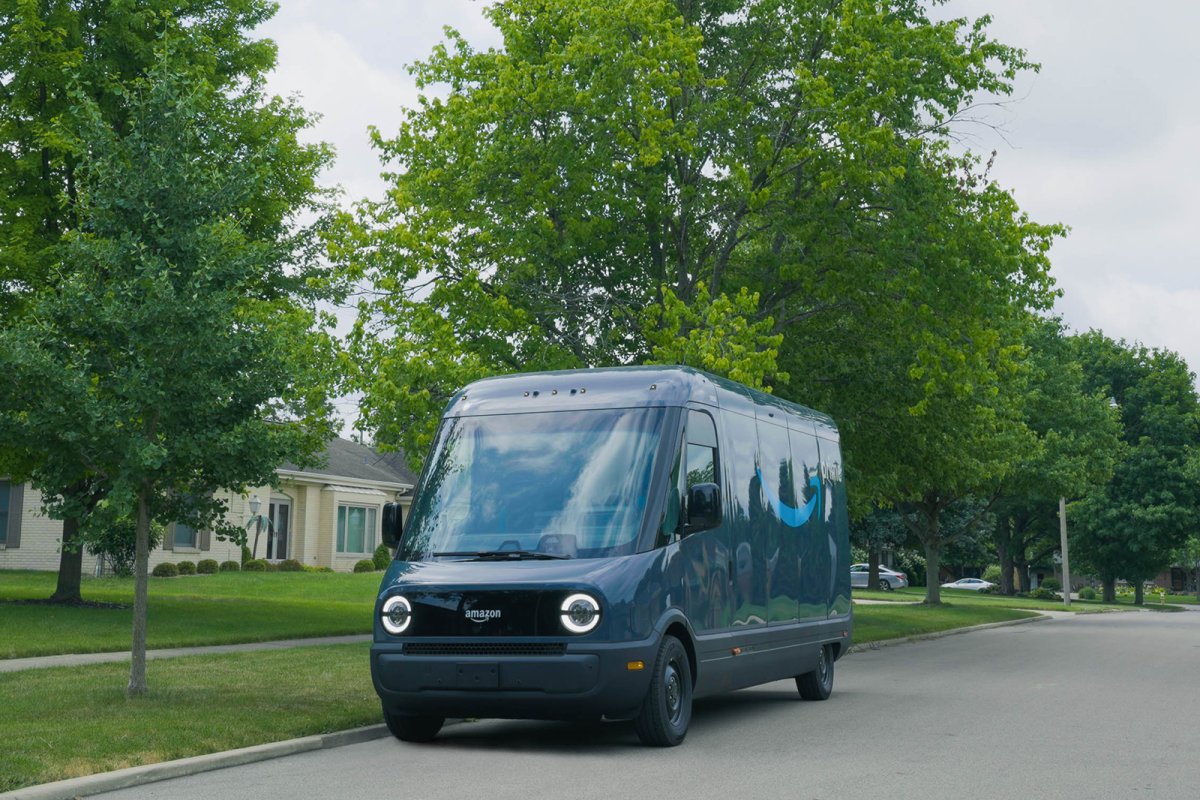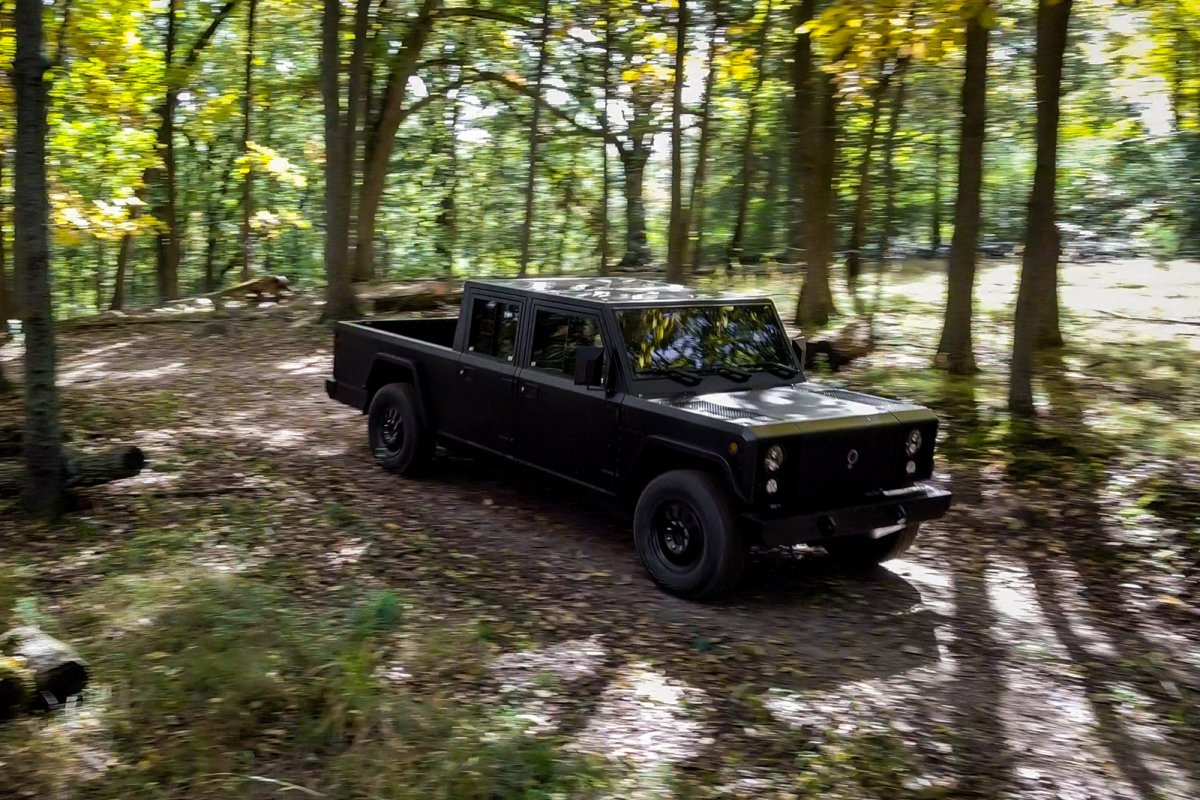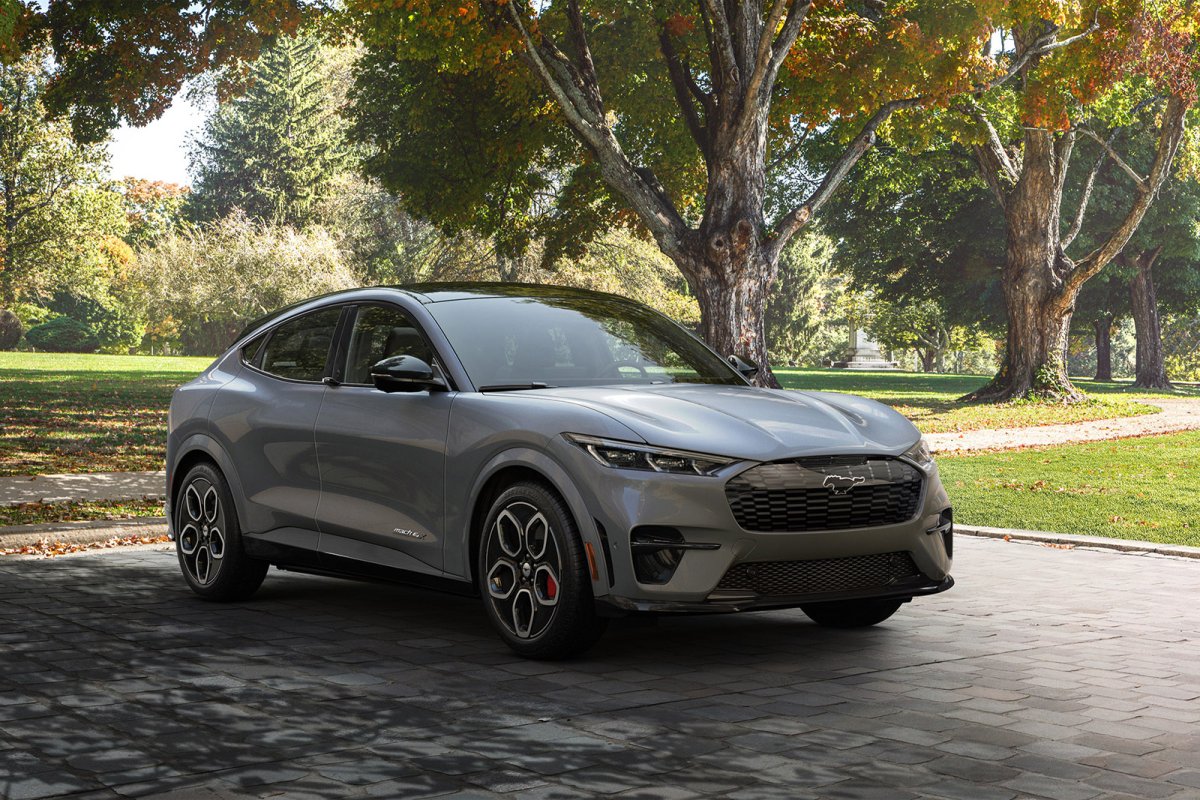Businesses that already produce electric vehicles (EVs) and those planning to start have made bold business moves this week that are predicted to keep them relevant in the EV and hands-free driving conversation.
Ford Motor Company, Rivian, Mercedes-Benz, Bollinger Motors and Mullen Automotive all made significant news regarding their product portfolios.
Many analysts see the electric vehicle industry at a tipping point over the next few years. "There has never been a better time in the industry for automakers to seek joint ventures than in the shift to EVs. The technology development, materials, and production of EVs are all capital-intensive, so sharing costs makes sense and goes a long way," Paul Waatti, manager of industry analysis at AutoPacific told Newsweek.
Rivan and Mercedes-Benz
Electric vehicle startup Rivian and longtime automotive nameplate Mercedes-Benz have signed a Memorandum of Understanding to develop a strategic partnership for the production of electric vans in Europe.
The partnership, still subject to regulatory clearances, is designed to establish a new joint venture manufacturing company in Europe that will produce large electric vans for Mercedes-Benz Vans and Rivian. The new electric-only production facility will leverage an existing Mercedes site in Central/Eastern Europe.

Mercedes currently makes the eSprinter and eVito electric vans. Rivian is building delivery vans for Amazon. Among Mercedes' production facilities in the region are plants in Germany, Austria and Hungry. Rivian makes its models at its lone plant in Normal, Illinois, U.S.
Production at the new facility is expected to create two branded vehicles side by side. The first will be based on Mercedes-Benz Vans Electric Architecture and the other will be a second-generation electric van riding on the Rivian Light Van platform.
"Rivian and Mercedes-Benz have both shown great promise in the future electric vehicle space and already have established technologies to bring to the table," Waatti said.
"While the vans will be unique to each automaker, codeveloping the two alongside each other will cut down on development costs and accelerate timelines. There will undoubtedly be some shared componentry that will benefit from scale in reducing parts costs for both and enable streamlined production on a common line under one production facility's roof.
"Rivian already has its hands full getting its current models out of the door and juggling multiple future product projects. Rivian is also securing more future production capacity for models other than a new van in its U.S. production sites in the process."
Mercedes previously announced that all its vans, from 2025, will be battery powered.
Mullen Automotive and Bollinger Motors
EV fresh face Mullen Automotive has purchased a 60 percent controlling stake in Bollinger Motors for $148.2 million USD cash. It's the company's first EV acquisition after having purchased many of its building blocks from other enterprises along the way.

Bollinger Motors was founded in 2015 and is headquartered in Oak Park, Michigan. Mullen Automotive is based in Southern California.
The Bollinger Motors business models plans to begin class 3-8 medium duty trucks in production in 2023. It is slated to restart development of its B1 and B2 sport utility vehicles (SUVs).
"Combining Bollinger's vehicles with our existing class 1 and class 2 EV cargo van programs gives us the chance to dominate the entire class 1-6 commercial light and medium duty truck segments. In addition, Bollinger will be able to leverage Mullen's solid-state battery technology, making their current vehicles even more competitive as our technology launches across the total portfolio of EVs from both Mullen and Bollinger," said David Michery, CEO and chairman of Mullen Automotive in a press release.
Ford Motor Company
Drivers of Ford Motor Company vehicles have already completed 16 million miles of hands-free driving since the company rolled out its Ford BlueCruise and Lincoln ActiveGlide driver assist technology over the last year.
A new update to the technology catches up much of the advanced driver assistance systems (ADAS) capabilities with General Motors' Super Cruise, though it still lags behind in some areas.

Three key improvements to the system will be made available in Ford's electric vehicles. Lane Change Assist allows drivers to tap a turn signal to start the process for the system to make an automatic lane change. The tech allows allows the vehicle to suggest a land change to the driver.
Predictive Speed Assist automatically adjust the speed of the vehicle when the tech recognizes a sharp curve is approaching. Unlike how the technology operates in Hyundai and Nissan vehicles, the driver will receive a signal that the change is about to occur.
In-Lane Repositioning takes hands-free driving to new heights, according to the company. It is designed to make the art of driving "feel more natural" by keeping the vehicle in its lane while subtly repositioning based on the closeness of vehicles around it.
"These improvements are just the beginning of a constant journey toward improving safety and giving customers valuable time back," said Doug Field, Chief EV & Digital Systems Officer, Ford Model E.
The new technology will begin arriving in vehicles coming from the factory this autumn, starting with the Ford Mustang Mach-E all-electric SUV. The model was sold out for the 2022 model year. Its sales were up 74.1 percent in July.
Ford recently announced that 2023 model year Mustang Mach-Es will have improved battery life. Its extended range versions will be capable of going 290 miles on a single charge.
Uncommon Knowledge
Newsweek is committed to challenging conventional wisdom and finding connections in the search for common ground.
Newsweek is committed to challenging conventional wisdom and finding connections in the search for common ground.
About the writer
Eileen Falkenberg-Hull leads the Autos team at Newsweek. She has written extensively about the auto industry for U.S. News & ... Read more
To read how Newsweek uses AI as a newsroom tool, Click here.








